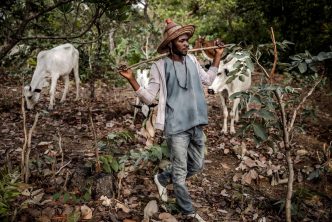Since Nigeria returned to civil rule in May 1999 (after nearly two decades of military
authoritarianism), the country has been engulfed in cyclical violent conflicts. The dawn of civil rule coincided with the proliferation of ethnic militias, a resurgence of ethno-religious conflicts, communal clashes, resource conflicts, nationality resistance, struggles for self-determination, and cacophonic political agitations. The scale, intensity, and consequences of the conflicts at present have prompted expressions of fear about the dismemberment of the country.
Furthermore, Nigerians now spend much energy striving to redefine their identity as a corollary of the perception, which these cyclical violent conflicts have engendered (Jega, 2007). Although the resilient spirit displayed by Nigerians so far has to some extent prevented the breakup of the country, still tension hangs in the air. In the quest for inclusive and sustainable peace, various proposals have been put forward. One of the trending proposals is constitutional reform.







